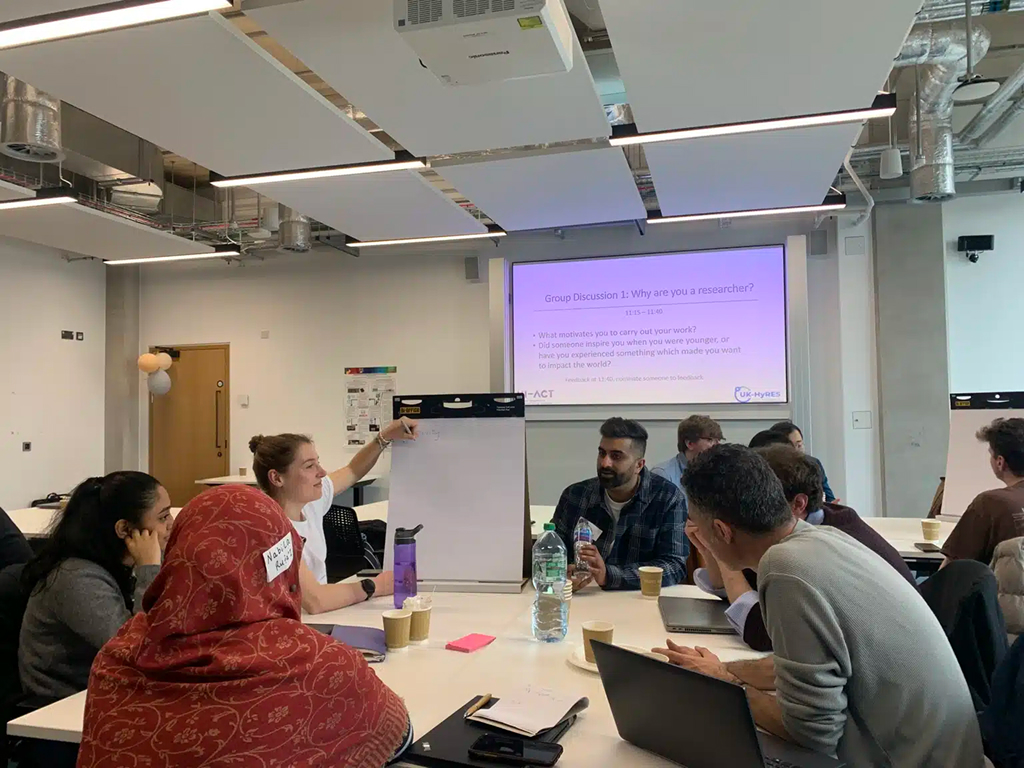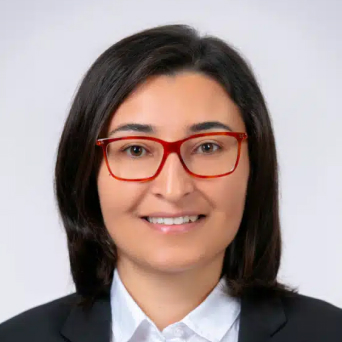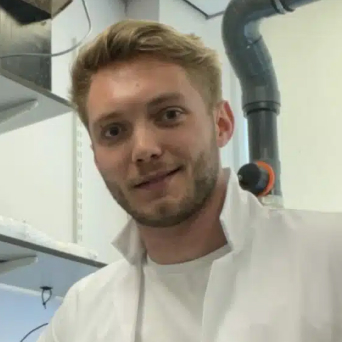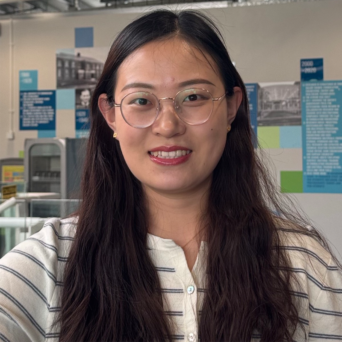The role of Early Career Researchers (ECRs)
Early-career researchers play a pivotal role in shaping the future of low-carbon hydrogen and alternative liquid fuel research. The UK-HyRES ECR Network serves as a catalyst for collaboration, skill enhancement, and career development among its members. With an initial cohort of postdoctoral research assistants, associates, and affiliated PhD students, the network aims to expand rapidly, fostering a dynamic research ecosystem.
The ECR Network aims to empower members through a programme of tailored activities – chosen by the ECRs. Our ambition is to provide a framework that will enable networking, up-skilling and career development, all while connecting with senior Hub academics to develop future research leaders.

UK-HyRES ECR definition
UK-HyRES ECRs are defined as
- Early Career Academic Staff (less than 3 years from first academic appointment)
- Post-Doctoral Research Assistants / Associates / Fellows
- PhD Students
- Early Career Researchers in industry and research institutes
Membership is available in three categories:
Core Members: ECR Committee, PhD students funded by the hub or through a hub-leveraged university research studentship, core postdocs (flexfund), and other funded ECRs.
Associate Member: ECR with a supervisor funded through UK-HyRES
Affiliate Member: ECRs aligned with objectives but not funded through the hub.
Core members are eligible to join the network free of charge, with funding available to cover travel and subsistence costs for any related events.
Associate and Affiliate members are also welcome to join the UK-HyRES network to receive the same benefits and opportunities; however, travel and subsistence funding must come from host institutions or Centres of Doctoral Training (CDTs), as applicable.

UK-HyRES ECR Network Context
Hydrogen and alternative liquid fuels (H&ALFs), such as ammonia, are essential for the UK to reach net zero emissions by 2050. Hydrogen is a highly versatile energy vector suitable for use in many hard-to-decarbonise sectors where other energy options, such as electricity, are not suitable.
UK-HyRES aims to identify, prioritise, and seek impactful solutions to research challenges across the entire hydrogen value chain from production via storage and distribution to end use.
The EPSRC has awarded £10.7M to UK-HyRES for a five-year research grant, which began 1 June 2023, following an extensive coordination phase from May 2022 to June 2023. In addition to this strong support, UK-HyRES has to date secured £7.0M in leveraged co-funding from industry, civic and other research partners and £8.1M from the Hub’s core universities for PhD students and other targeted investments.
A separate EPSRC hydrogen hub, HI-ACT, Hydrogen Integration for Accelerated Energy Transitions, was also established at the same time. Hi-ACT focuses on the systems integration of today’s technologies, while UK-HyRES focuses on developing the technologies of tomorrow. While UK-HyRES will have a distinct ECR Network, the two groups will also come together to share ideas and collaborate.

UK-HyRES
ECR Committee

Dr Sibimol Luke
ECR Chair
University College London

Dr Rajan Jagpal
University of Bath

Dr Selda Özkan
University of St Andrews

Dr Harmanpreet Singh
University of Sheffield

Dr Alex Newman
University of Sheffield

Dr Louisa Wood
University of Portsmouth

Dr Josh Kassongo
University of Sheffield

Dr Xiaoling Ma
University of Surrey
Looking to join the network?
Submit your interest below
Looking to join the network?
Submit your interest below



